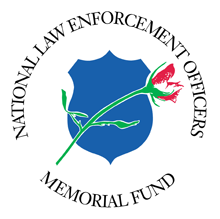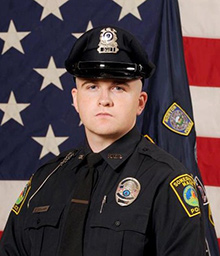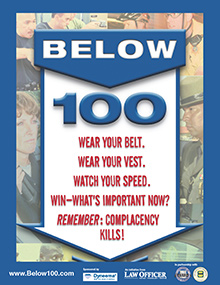
Contact Us
Attention Law Enforcement
Join the Jihad-Intel email list to receive intelligence bulletins on jihadist threats and information about training seminars.
Need assistance analyzing an identifier? Contact our experts at jihadintel@meforum.org
Knowledge of Jihad identifiers allows law enforcement to connect the dots before major terrorist attacks -- and solve cold cases. These identifiers provide unique insights into the recruitment and indoctrination that led to the Boston bombings and other attacks against America. If you see one, contact your department head or homeland security officer.
In midst of war, Ukraine becomes gateway for jihad
by Marcin Mamon • Mar 3, 2015 at 10:26 am
Cross-posted from The Intercept
https://jihadintel.meforum.org/142/in-midst-of-war-ukraine-becomes-gateway-for-jihad
WITH HIS WHITE hair and beard, Ruslan is still physically fit, even at 57. He's been a fighter his entire adult life. Born in a small mountain village in the Caucasus, on the border between Dagestan and Chechnya, Ruslan belongs to an ethnic minority known as the Lak, who are predominantly Sunni Muslim.
The world that Ruslan inhabits — the world of the brothers — is something new. When he first became a fighter, there wasn't any Internet or cell phones, or cameras on the street, or drones. Ruslan joined the brothers when the Soviet Union collapsed, and he went to fight for a better world, first against the Russians in Chechnya and Dagestan during the first Chechen war in the mid-1990s. He then moved to Azerbaijan, where he was eventually arrested in 2004 on suspicion of maintaining contact with al Qaeda.
Even though Ruslan admits to fighting with Islamic organizations, he claims the actual basis for the arrest in Azerbaijan — illegal possession of weapons — was false. Authorities couldn't find anything suspicious where he was living (Ruslan was staying at the time with his "brothers" in the jihad movement) but in his wife's home they found a single hand grenade. Ruslan was charged with illegal weapons possession and sent to prison for several years.
In prison, he says he was tortured and deliberately housed in a cell with prisoners infected with tuberculosis. Ruslan took his case to the European Court of Human Rights in Strasbourg, France, accusing the authorities in Azerbaijan of depriving him of due process. The court eventually agreed, and asked the Azerbaijani government to pay Ruslan 2,400 euros in compensation, plus another 1,000 euros for court costs.
But when Ruslan was released from prison, he didn't want to stay in Azerbaijan, fearing he would be rearrested, or even framed for a crime and again accused of terrorism. "Some of our people disappear and are never found," he says. "There was one brother [who disappeared], and when he was brought for burial, a card was found showing that he was one of 30 people held in detention in Russia."
In Russia, a warrant was issued for Riuan's arrest. Returning to his small mountain village was out of the question. If he goes back, his family will end up paying for what he does, anyhow. "They get to us through our families," he says. He condemns those who refused to leave their own country and fight the infidels. This was the choice: either stay, or go abroad where "you can breathe freedom."
"Man is born free," Ruslan says. "We are slaves of God and not the slaves of people, especially those who are against their own people, and break the laws of God. There is only one law: the law of God."
After his release from prison in Azerbaijan, Ruslan became the eternal wanderer, a rebel — and one of the brothers now in Ukraine. He came because Munayev, now head of the Dudayev battalion, decided the brothers should fight in Ukraine. "I am here today because my brother, Isa, called us and said, 'It's time to repay your debt,'" Ruslan says. "There was a time when the brothers from Ukraine came [to Chechnya] and fought against the common enemy, the aggressor, the occupier."
That debt is to Ukrainians like Oleksandr Muzychko, who became one of the brothers, even though he never converted to Islam. Muzyczko, along with other Ukrainian volunteers, joined Chechen fighters and took part in the first Chechen war against Russia. He commanded a branch of Ukrainian volunteers, called "Viking," which fought under famed Chechen militant leader Shamil Basayev. Muzychko died last year in Ukraine under mysterious circumstances.
Ruslan has been in Ukraine for almost a year, and hasn't seen his family since he arrived. Their last separation lasted almost seven years. He's never had time to raise children, or even really to get to know them. Although he's a grandfather, he only has one son — a small family by Caucasian standards, but better for him, since a smaller family costs less. His wife calls often and asks for money, but Ruslan rarely has any to give her.
I N THE 17th century, the area to the east of the Dnieper River was known as the "wilderness," an ungoverned territory that attracted refugees, criminals and peasants — a place beyond the reach of the Russian empire. Today, this part of Ukraine plays a similar role, this time for Muslim brothers. In eastern Ukraine, the green flag of jihad flies over some of the private battalions' bases.
For many Muslims, like Ruslan, the war in Ukraine's Donbass region is just the next stage in the fight against the Russian empire. It doesn't matter to them whether their ultimate goal is a Caliphate in the Middle East, or simply to have the Caucuses free of Russian influence — the brothers are united not by nation, but by a sense of community and solidarity.
But the brothers barely have the financial means for fighting or living. They are poor, and very rarely receive grants from the so-called Islamic humanitarian organizations. They must earn money for themselves, and this is usually done by force. Amber is one of the ideas Ruslan has for financing the "company of brothers" fighting in eastern Ukraine — the Dudayev battalion, which includes Muslims from several nations, Ukrainians, Georgians, and even a few Russians.
The brothers had hoped the Ukrainian authorities would appreciate their dedication and willingness to give their lives in defense of Ukrainian sovereignty, but they miscalculated. Like other branches of fighters — Aidar, Azov and Donbass — the government, for the most part, ignores them. They're armed volunteers outside the control of Kiev, and Ukraine's politicians also fear that one day, instead of fighting Russians in the east, the volunteers will turn on the government in Kiev. So ordinary people help the volunteers, but it's not enough. The fighters associated with the Ukrainian nationalist Right Sector get money, cars and houses from the rich oligarchs.
Ruslan has a different plan. He's afraid that if they begin stealing from the rich, the Ukrainian government will quickly declare their armed branch illegal. He's decided to work in the underground economy — uncontrolled by the state — which the brothers know best.
Back in the '90s, the amber mines in the vast forests surrounding the city of Rivne were state-owned and badly run, so residents began illegally mining; it was a chance at easy money. Soon, however, the mafia took over. For the right daily fee, miners could work and sell amber to the mafia at a fixed price: $100 per kilogram. The mafia conspired with local militia, prosecutors and the governor. That was the way business worked.
As a result, although Ukraine officially produces 3 tons of amber annually, more than 15 tons are illegally exported to Poland each year. There, the ore is processed and sold at a substantial profit. The Rivne mines operate 24 hours a day. Hundreds of people with shovels in hand search the forest; they pay less to the mafia, but they extract less amber and earn less. The better off are those who have a water pump. Those people pump water at high pressure into the earth between the trees, until a cavity 2 to 3 meters deep forms. Amber, which is lighter than water, rises to the surface.
At one point, Ruslan disappeared in Rivne for several weeks. When he returned, he was disappointed; he'd failed to convince the local mafia to cooperate with the brothers' fight for an independent Ukraine. But now, he has other arguments to persuade them. His men are holding up the mines, by not allowing anyone into the forest. Either the local gangsters share their profits, or no one will get paid.
Ruslan doesn't like this job. He knows it won't bring him any glory, and could land him in prison. He would have preferred to be among the fighters at the front lines, where everything is clear and clean. He says he can still fight, but he's already too old to really endure the rigors of battle, even if he doesn't want to admit it. He may still be physically fit, but fighters don't usually last longer than a few years. Then they lose their strength and will to fight.
He has other orders from Munayev: he's supposed to organize a "direct response group" in Kiev. The group will be a sort of rear echelon unit that take care of problems, like if someone tries to discredit the Dudayev battalion. It will also collect debts or scare off competition. There's no doubt the new branch will work behind the lines, where there isn't war, but there is money — as long as you know where to get it. If need be, the direct response group volunteers will watch over the mines in Rivne, or "will acquire" money from illegal casinos, which operate by the hundreds in Kiev.
Ruslan sends me photos of the group's criminal exploits: they came into the casinos with weapons, and broke into the safes and slot machines. They disappeared quickly, and were never punished. The money went to food, uniforms, boots, tactical vests and other equipment necessary for the fighters. The mafia knows they can't beat them at this game. The brothers are too good, because they are armed and experienced in battle. The police aren't interested in getting involved either. In the end, it's illegal gambling.
I told Ruslan that it's a dangerous game. He laughed.
"It's child's play," he says. "We used to do this in Dagestan. No one will lift a finger. Don't worry."
RUSLAN FINALLY DROVE me to see his "older brother," to Isa Munayev, and his secret base located many miles west of Donetsk.
Riding in an old Chrysler that Ruslan bought in Poland, we drove for several hours, on potholed and snowy roads. Ruslan had glued to the car one of the emblems of Ukraine's ATO, the so-called Anti-Terrorist Operation, which includes both soldiers and volunteers in the fight against separatists.
The bumper sticker allows him to drive through police traffic stops without being held up — or if he is stopped, they won't demand bribes as they do from other drivers. The ATO sticker, Ruslan's camouflage uniform, and a gun in his belt are enough to settle matters. Policemen salute him and wish him good luck.
He drives fast, not wanting to rest, sleep or even drink coffee. If he stops, it's to check the compass on his belt to check the direction of Mecca. When it's time to pray, he stops the car, turns off the engine, places his scarf in the snow and bows down to Allah.
Asked whether — after so many hardships, after so many years, and at his age, almost 60 now — he would finally like to rest, he answered indignantly, "How could I feel tired?"
There's much more work to do, according to Ruslan. "There's been a small result, but we will rest only when we've reached our goals," he says. "I'm carrying out orders, written in the Holy Quran. 'Listen to God, the Prophet.' And I listen to him and do what I'm told."
On the way into the city of Kryvyi Rih, we met with Dima, a young businessman — under 40 — but already worth some $5 million. He's recently lost nearly $3 million from his business in Donetsk, which has been hit hard by the war. Dima worked for Igor Kolomoisky, one of the oligarchs who had been funding Ukraine's volunteer battalions. Dima and Ruslan have only known each other for a short time. Ruslan claimed Dima owed him a lot of money, although it's unclear from what. Ruslan kept bothering him, threatening to blackmail him. Finally, he got $20,000 from Dima.
That's not nearly enough to support the Dudayev battalion. But Ruslan had something bigger to offer Dima: amber. Now, Dima was ready to talk. He came up with the idea to find buyers in the Persian Gulf, including wealthy sheikhs. They would like to sell an entire house of amber: furniture, stairs, floors, and inlaid stones. It only takes contacts, and Ruslan has them. The brothers from Saudi Arabia like to help the jihad in the Caucasus and the Middle East.
The next day, Ruslan was behind the wheel again. The old Chrysler barely moved, its engine overheated. A mechanic with an engineering degree and experience working in Soviet arms factories connected a plastic bottle filled with dirty water to the radiator using a rubber hose.
"I don't know how long I'll last," Ruslan says suddenly. "It depends on God. I'll probably die on this road. But I don't have any other road to take."
receive the latest by email: subscribe to the free jihad intel mailing list
- Inquiring About A Role In Suicide Bombings Via WhatsApp
- The Hay'at Tahrir al-Sham-al-Qaeda Dispute: Primary Texts (VI)
- The Hay'at Tahrir al-Sham-al-Qaeda Dispute: Primary Texts (V)
- The Hay'at Tahrir al-Sham-al-Qaeda Dispute: Primary Texts (IV)
- The Hay'at Tahrir al-Sham-al-Qaeda Dispute: Primary Texts (III)
- The Hay'at Tahrir al-Sham-al-Qaeda Dispute: Primary Texts (II)
- The Hay'at Tahrir al-Sham-al-Qaeda Dispute: Primary Texts (I)
- Islamic State Advice on Attacks in 'Enemy Abode'
- Harakat Nour al-Din al-Zinki Splits from Hay'at Tahrir al-Sham
- Ansar al-Shari'a in Libya Dissolves Itself
- Hay'at Tahrir al-Sham: Initial Statements and Translations
- Jabhat Fatah al-Sham removes Jund al-Aqsa from its ranks
- The Jerusalem Attack: Palestinian Group Claims Responsibility
- Unseen Islamic State Regulations for the Mosul Operations
- The fitna inside Jaysh Khalid ibn al-Waleed
- New reported leader for Jaysh Khalid ibn al-Waleed
- The Islamic State leadership in Mosul
- Jabhat Fatah al-Sham Manifesto: Statement, Translation & Analysis
- Jabhat al-Nusra: Breaking ties with al-Qaeda?
- The Orlando Attacks: Islamic State-Linked?
- Intelligence Update: March 12-March 22, 2016
- Special Alert: Islamic State Claims Brussels Attacks
- Eulogy to Abu Nabil al-Anbari: Islamic State leader in Libya
- Guide to Islamic State Document Hoaxes
- Islamic State Financial Accounts of Deir az-Zor Province
© 2026 Middle East Forum


